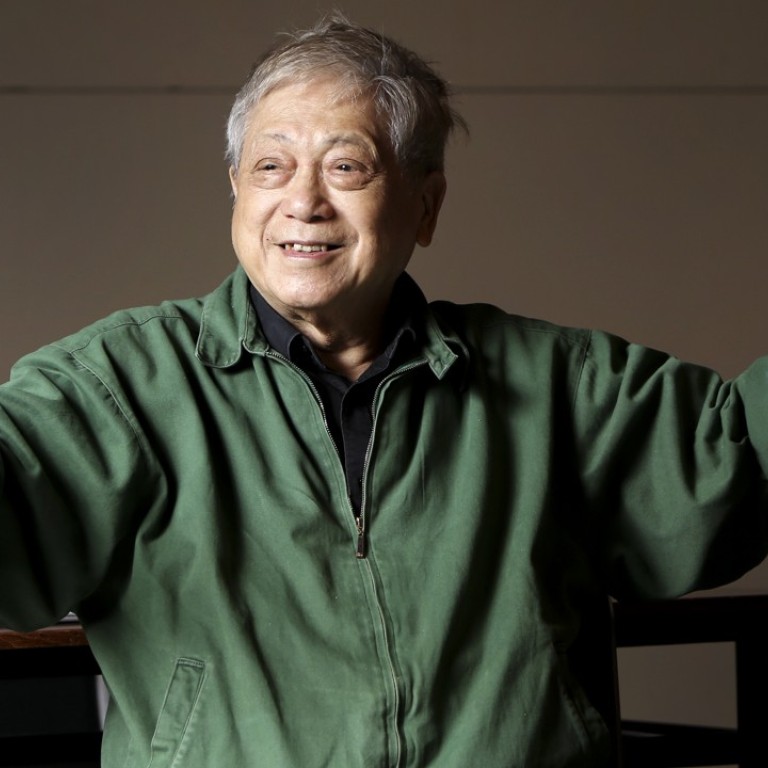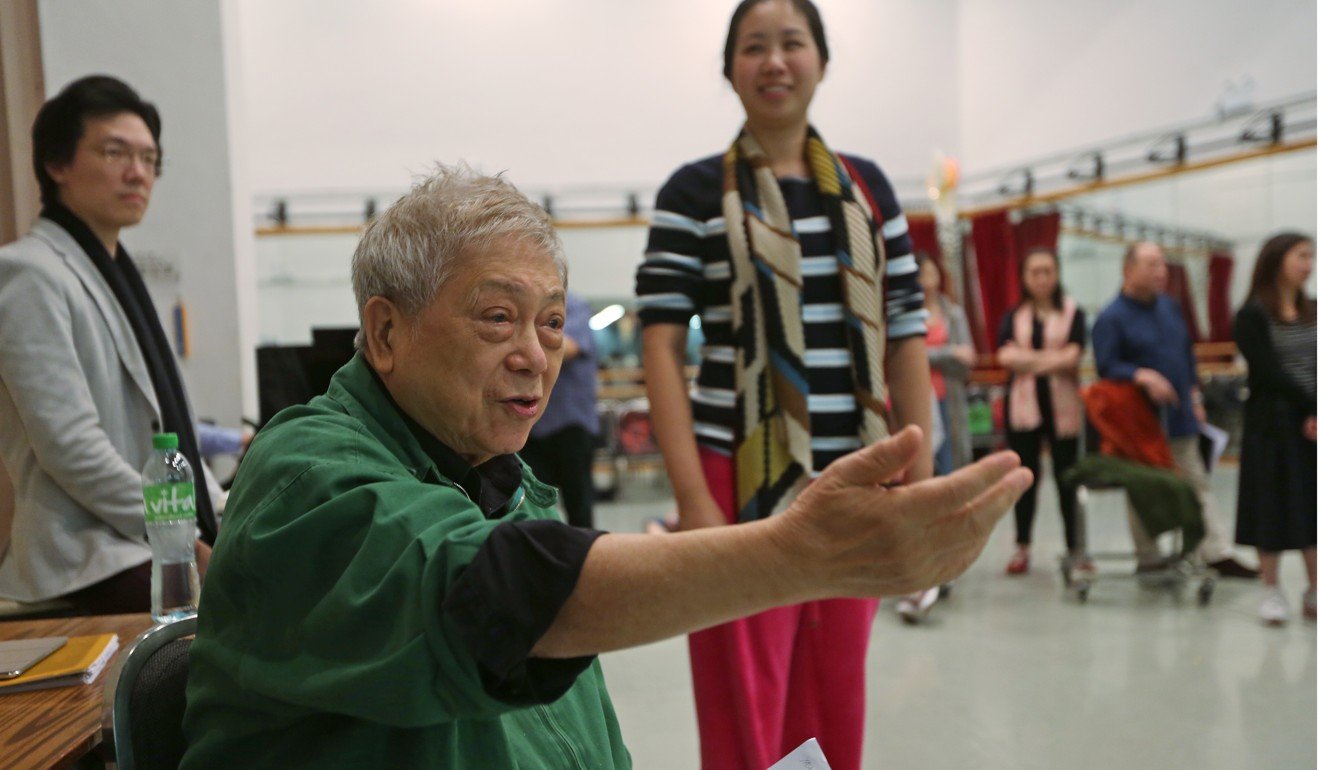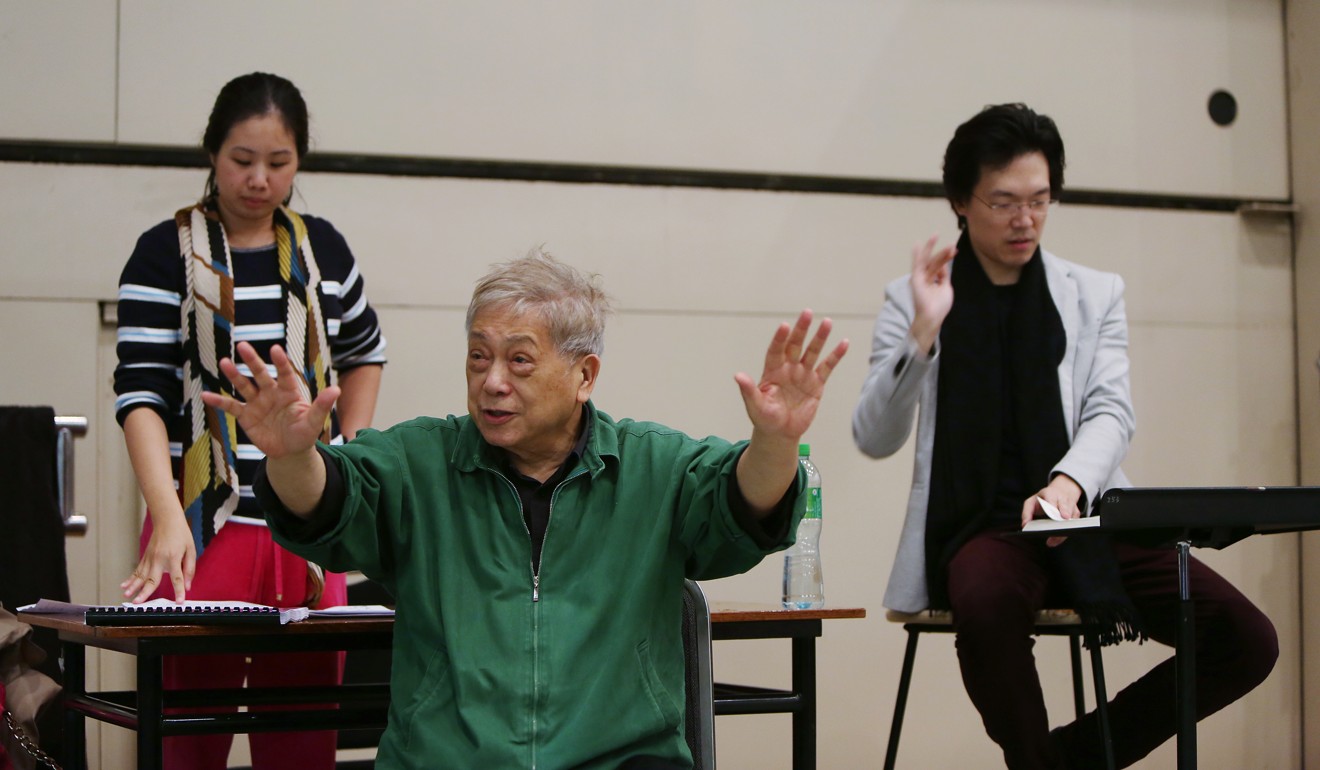
‘Father of Hong Kong opera’, 79, laments that he may ‘not live to see an opera house’ at the West Kowloon Cultural District
Professor Lo King-man is preparing for his latest production of Italian opera La Bohème, and says nothing has been done at arts hub to create a venue for Western opera
The man dubbed the “father of Hong Kong opera” shows no sign of slowing down ahead of his 80th birthday.
Lo, who has more than 200 productions under his belt, is upbeat about his coming interpretation of Giacomo Puccini’s beloved story of poverty-stricken 1870s Paris youths, which he is staging for his annual operatic production at Hong Kong’s City Hall.
But he is less optimistic about the future of Western opera at the West Kowloon arts hub.
“After so many years of delays, there has been nothing done about a performing venue at West Kowloon, except for the Xiqu Centre,” Lo says.

The Xiqu Centre will host traditional Chinese operas and is due to open next year.
“I often say, cynically, that I will not live to see an opera house there,” says the musical maestro, who will turn 80 this month.
Of the “many operational problems” with the hub – a 40-hectare multibillion-dollar project financed by the government that seeks to create a space for arts and cultural venues – Lo says the “most fatal” one was asking local art groups using it to be self-supporting.
“I believe no one in the art world can survive on their own,” he says. “Those small groups formed by young artists would have a difficult time.”
Hongkongers ‘take their cultural heritage for granted’, laments Cantonese opera master
One way for artists to balance their finances would be to present works with more commercial appeal, Lo says, such as La Bohème . The four shows this week will be Lo’s fifth time performing the opera in his long career.
“This opera has the most beautiful music in the history of operas, but the famous arias are so difficult that I need two different casts, and I have engaged top stars from international opera houses for the performances,” says the former horn player, who studied opera in Italy in the early 1960s.

The famous duet in the first act of La Bohème was among the arias in Lo’s first operatic concert at City Hall in 1964, he recalls. But it was not until 1981 that he performed the entire four acts of La Bohème , with the Hong Kong Philharmonic Orchestra. Three years later he took the opera on his first overseas tour, to Singapore and Thailand. In 1998, it made its Beijing debut.
“That was the first Beijing Music Festival and the first anniversary of Hong Kong’s return to Chinese rule. It was quite memorable,” he recalls, with Chinese state leaders including ex-premier Li Peng and former vice-premier Wu Yi in the audience.
Hong Kong’s new Chinese opera centre will be run by an American, and local performers aren’t happy
The latest production incorporates what Lo says is his new understanding of the play.
“I re-read the original short stories by Henri Murger on bohemian youths and the sadness, joy, and tears their irresponsible lives brought them,” he says.
But Lo dismisses any suggestion the story had relevance to present-day Hong Kong, “except perhaps the garret scene at the rooftop, which may resonate with [those in] subdivided flats in Sham Shui Po.”

